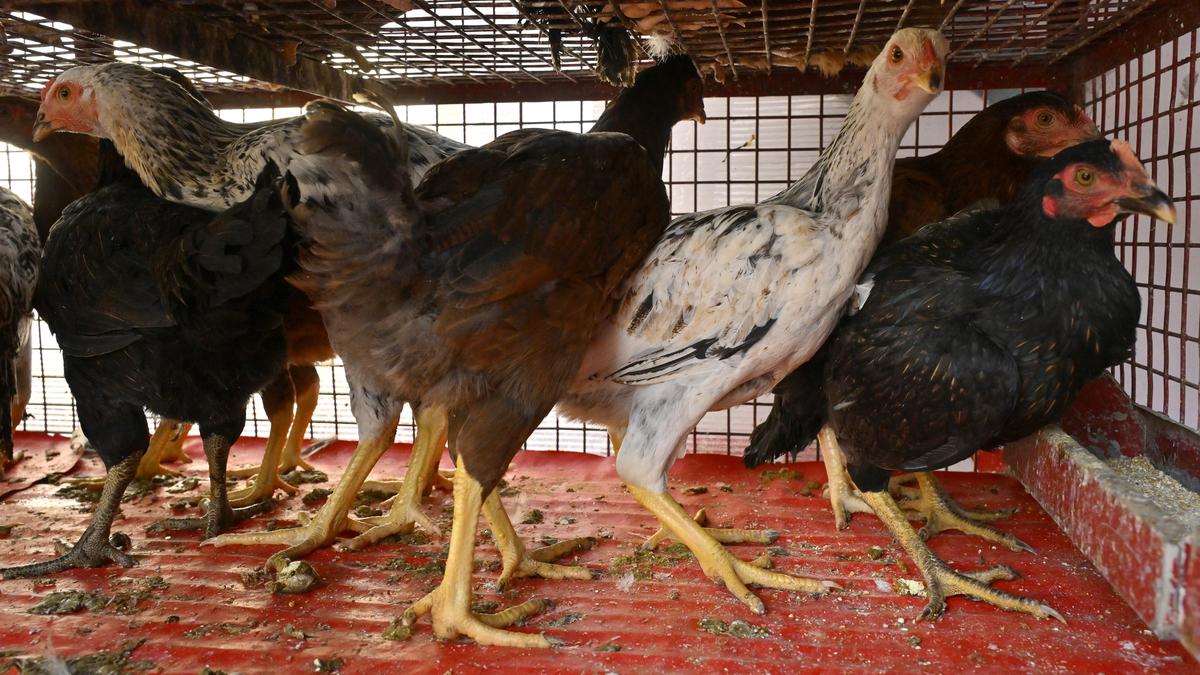
Avian influenza: Amid rising concerns across India, doctors decode outbreak, explain how to consume poultry safely Premium
The Hindu
Telangana ramps up biosecurity measures to combat bird flu outbreak, assures public of safe poultry consumption.
With concerns over avian influenza, commonly known as bird flu, resurfacing across India, Telangana has ramped up efforts to safeguard its poultry industry. With cases emerging in neighbouring states and the Central government issuing advisories, State authorities are working to strengthen biosecurity measures, educate poultry farmers, and reassure the public about the safety of poultry consumption.
The situation gained urgency early this month, when the Telangana Animal Husbandry Department issued a circular alerting District Collectors about the threat posed by highly pathogenic Avian Influenza (HPAI). The directive highlighted the need to strengthen biosecurity measures to prevent the virus’s spread and protect the poultry population. The circular also called for heightened awareness among poultry farmers, stakeholders, and the general public, particularly regarding the transportation of sick birds.
Avian Influenza primarily affects birds and is often transmitted through wild migratory species. With recent outbreaks reported in Maharashtra, Chhattisgarh, Rajasthan, and Andhra Pradesh, the Central government has urged all states to enhance surveillance and biosecurity protocols at poultry farms.
Ranga Reddy Burri, president of the Infection Control Academy of India, underscored the importance of timely action in preventing the virus’s transmission. “In the past, delays in epidemiological surveys and response measures led to the rapid spread of infections. This year, coordinated efforts between public, private, and government agencies have helped contain the virus in many areas,” he said.
The fear has caused many people to stop consuming chicken and eggs, resulting in a decline in demand. As a consequence, the prices of chicken and eggs in Telangana, particularly in Hyderabad, have dropped by at least ₹20 to 30 since the news of the outbreak emerged.
Addressing public concerns over poultry consumption, Dr. Burri dismissed fears surrounding chicken and egg safety. “Avoiding poultry consumption due to bird flu is a knee-jerk reaction. Properly cooked chicken or eggs do not pose any risk. However, since birds are handled at multiple stages before reaching consumers, doubts persist. This uncertainty affects purchasing decisions but has not led to strong protests against poultry consumption.”
Dr. Burri also warned of the potential for the virus to jump from birds to humans, a phenomenon observed in different parts of the world. He stressed that lapses in biosecurity could increase this risk, particularly among poultry handlers with weakened immunity. “To minimise the risk of transmission, stringent biosecurity measures must be maintained. Biosecurity in poultry is the equivalent of infection control in humans,” he explained.













